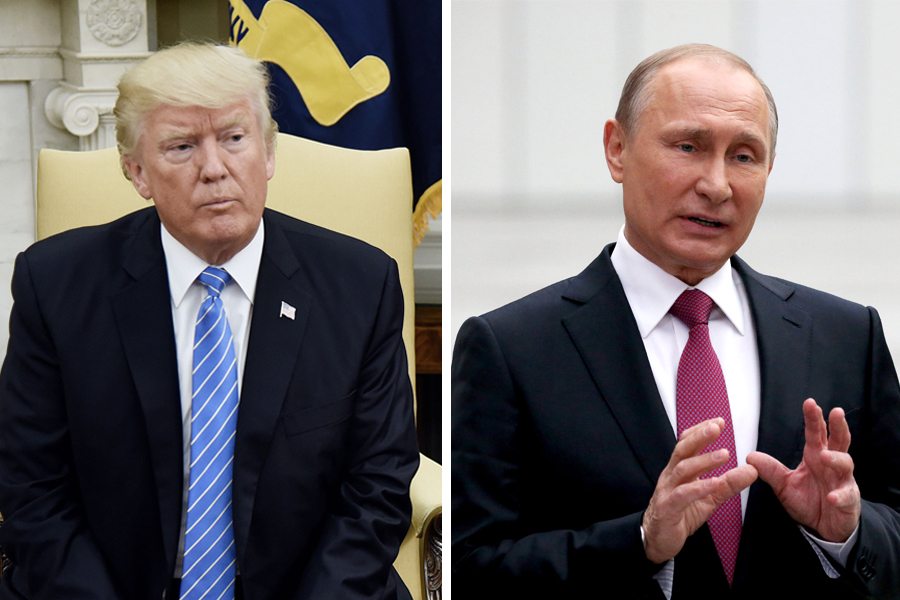
Dear Pentagon, We’re writing to advise you of a change in our military rules of engagement in Syria. Any aircraft belonging to the international coalition operating west of the Euphrates River will be tracked by Russian anti-aircraft forces in the sky and on the ground and treated as targets. Cross the Euphrates and we reserve the right to shoot down your plane. In addition, we are cutting the cord on further communications on military coordination. Have a nice day.
–Defense Ministry of the Russian Federation
That, essentially, was the stark message from Moscow after the U.S. shot down a Syrian military plane on June 18. The U.S.-led coalition claims that Syrian forces, and Russia’s military, were warned in advance that Syrian planes were in the crosshairs and that the downed Syrian jet ignored warnings and dropped bombs. Russia disputes this. This is hardly the new U.S.-Russia relationship that Presidents Donald Trump and Vladimir Putin said they wanted. What’s happening here?
In support of President Bashar Assad’s government in Syria and with support from Iran, Russia has established military dominance in Syria. Now the question is how much of the country Russia can help Assad reclaim. U.S. officials, particularly in the Pentagon, want to minimize Assad’s gains and political leverage to get an outcome that creates more balance in the country and denies Russia a dominant role in Syria’s future.
Syria shows the clearest impact of Trump’s decision to leave military decisions to the generals. Defense Secretary James Mattis does not share the President’s publicly expressed benign view of Russian actions or his hopes for a new détente. That’s why, beyond the latest sensational headline on investigations into the Trump campaign’s possible collusion with the Russian government, the real story in U.S.-Russia relations looks a lot more like the hard-line realpolitik we might have expected from a President Hillary Clinton. Add the 97-2 vote in the Senate recently on a plan to tighten sanctions on Russia, and the picture couldn’t be clearer: Trump might be one of the last friends that Russia has in Washington, and though he isn’t changing course, he can’t prevent others in his Administration or in Congress from changing it for him.
The Russians are very unlikely to shoot down a U.S. plane. Putin is aggressive, not stupid. But he will keep looking for ways to undermine U.S. interests whenever and wherever he can, particularly as he plays up his role as strongman in advance of Russian elections in 2018. There is real danger here for still more confrontation in U.S.-Russia relations. Despite his best efforts, there isn’t much that Trump can do about it.
More Must-Reads from TIME
- Donald Trump Is TIME's 2024 Person of the Year
- Why We Chose Trump as Person of the Year
- Is Intermittent Fasting Good or Bad for You?
- The 100 Must-Read Books of 2024
- The 20 Best Christmas TV Episodes
- Column: If Optimism Feels Ridiculous Now, Try Hope
- The Future of Climate Action Is Trade Policy
- Merle Bombardieri Is Helping People Make the Baby Decision
Contact us at letters@time.com